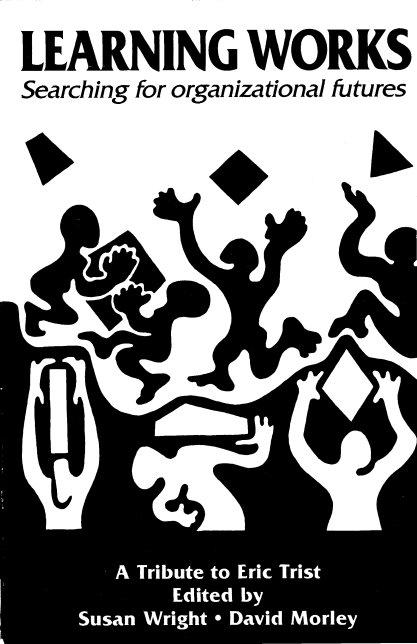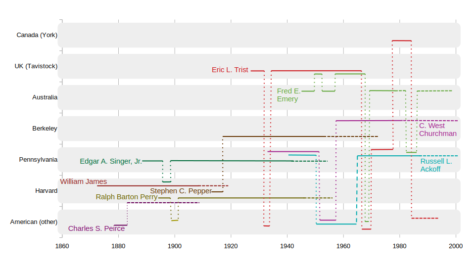Towards appreciating “action learning”, the history of open systems thinking and pioneering work in organization science, the influence of Action Learning Group — in the Faculty of Environment Studies founded in 1968 at York University (Toronto) — deserves to be resurfaced.
- 1. Trist in Canada
- 2. Environmental studies, and contextualism in organizational-change
- 3. Action learning, based on open systems theory
- 4. Extending action research into action learning
- 5. Social engagement in social science
- Appendix: Contents
The 1989 book with “A Tribute to Eric Trist” on the cover was titled Learning Works: Searching for Organizational Futures. The editors were Susan Wright, a part-time assistant professor at York U.; and David Morley, a professor in the Faculty of Environmental Studies at York U., who would become Dean of FES from 2001-2004.
1. Trist in Canada
Eric Trist was a Professor of Organizational Behavior and Social Ecology at York University, 1978-1983, passing away in Carmel, California in 1993. Systems scholars may better recall Trist as emeritus from the 1969-1978 program in the Social Systems Science program at University of Pennsylvania, that was founded by Russell Ackoff.
The preface to the book describes the origins of its writing.
… Read more (in a new tab)This volume began life at a 1985 meeting of the York University Action Learning Group, a loose network of people who were participating in the development of a new framework for theorizing, studying, and participating in the creation of new organizational capacities and enabling strategies to operate within turbulent environments (one of Trist’s most important metaphors).




